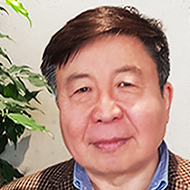1 The high-level policy goal of universal health coverage and the rights-based social health protection framework
The COVID-19 pandemic has increased the visibility of the importance of a social safety net in all countries, including for health. This increased visibility makes the mission of the Global Network for Health Financing and Social Health Protection for Universal Health Coverage (P4H) to enhance collaborative efforts in health financing and social health protection (SHP) even more pertinent than it was in 2007, when P4H was created. Health financing and SHP for universal health coverage (UHC) are the core focus of partnership collaboration under P4H. Today, UHC is broadly known as the overarching goal of all people to obtain the health services they need without suffering financial hardship when paying for them. The goal of UHC is fundamental to strengthening health systems to attain the health-related Sustainable Development Goals (SDGs) by 2030. [i]
The notion of UHC is found in the Constitution of the World Health Organization of 1948 as the attainment of the highest possible level of health by all people. [ii] WHO’s Conference on Primary Health Care (PHC) held in Alma Ata in 1978 and the Astana Global Health Conference on Primary Health Care held in October 2018 in Astana echoed the value of universality. The UN General Assemblies held in 2012 and 2019 recognized UHC as a vital prerequisite to meeting the SDGs. [iii] WHO promoted UHC as a goal that every country and national government needed to pursue to make a difference in the health and well-being of populations. [iv]
SHP work is grounded in the human rights framework and, further, in international social protection standards. It designates a series of public or publicly organized and mandated private measures to achieve effective access to health care without hardship as well as income security to compensate the loss of earnings in case of sickness. [v] The lack of access to such protections for the majority of the world’s population constitutes a great risk of people falling into poverty and of leaving the most vulnerable behind. The human rights to health and social security define a person’s access to health care services when needed without suffering hardship as an inalienable right that all should enjoy. [vi] SHP is therefore an important rights-based contribution to the political objective of UHC.
Meeting the goal of universal health care access requires that SHP systems generally foster risk pooling and cross-subsidization between the rich and those living in poverty, the young and the old, those living with illness and the healthy. For such reasons out-of-pocket payments and private insurance schemes, neither of which favours risk pooling or cross-subsidization, are not considered valid mechanisms for primary coverage under the relevant SHP instruments. Moreover, the operationalization of SHP implies constant improvement as more fiscal space is created to ensure universality of coverage and levels of protection beyond the basic range of health services covered.
References
[i] United Nations (2015). Sustainable Development Goals: 17 Goals to transform our world.
www.un.org/sustainabledevelopment/sustainable-development-goals/
[ii] WHO (1948). Constitution of WHO. https://www.who.int/governance/eb/who_constitution_en.pdf
[iii] United Nations (2012). Resolution.
[iv] WHO (17 July 2017). WHO estimates cost of reaching global health targets by 2030. WHO News Release. http://www.who.int/mediacentre/news/releases/2017/cost-health-targets/en/
[v] ILO (March 2020). Towards Universal Health Coverage: Social Health Protection Principles. Social Protection Spotlight. https://www.social-protection.org/gimi/RessourcePDF.action?id=56009
[vi] United Nations High Commissioner for Human Rights (15 May 2019). Report E/2019/52 on economic, social and cultural rights to the Economic and Social Council at its 2019 session. https://undocs.org/E/2019/52
[vii] Terms of Reference for the P4H Network (September 2018).
[viii] P4H Leadership Program for UHC. https://p4h.world/en/l4uhc
[ix] P4H 2020 (October 2021). Annual Review from July 2019 to June 2020.
2 The birth of P4H and its mission
P4H was born in 2007 during the 33rd G8 Summit that took place in Heiligendamm, Germany. The Group of Eight leaders and the President of the European Commission met and discussed political, economic, social and environmental aspects of globalization under the core theme “Growth and Responsibility.” The leaders agreed to actively promote social standards, corporate social responsibility, and the need to strengthen social security systems in emerging economies. The summit participants confirmed that socioeconomic development challenges in improving health and health systems can only be met in a spirit of partnership, mutual accountability and trust, and through enhanced international dialogue and cooperation.

The world leaders at the summit recognized that access to quality health services remained (and continues to remain) a critical challenge in many developing economies. The G8 Summit reaffirmed the leaders’ commitment to continue to scale up their efforts to deliver practical steps toward universal access to health care. Their statements were further supported and shaped by the International Labour Organization (ILO), the World Bank Group (WBG) and the World Health Organization (WHO) to launch P4H. Over the past 15 years, the P4H Network has evolved substantially. The P4H Network has become and is now recognized as the unique platform for partnership collaboration in the area of health financing and SHP.
P4H has expanded since 2007 as new development partner organizations, countries and institutions joined its original membership. The mission of P4H is to promote, develop and strengthen exchanges and collaboration for health financing and SHP for UHC. [vii] It connects stakeholders across health, finance, social and other relevant sectors to accelerate progress toward UHC. P4H acts as a neutral and honest broker among all involved stakeholders to build coherent frameworks for country, regional and global action. P4H is governed by a steering group (SG) representing 18 partner institutions and countries, supported by a technical exchange group (TEG) of experts who make substantive contributions, or “technical inputs,” into network activities. The P4H Coordination Desk staff and P4H Country Focal Persons (CFPs) form P4H’s Coordination Team (CT). Altogether, P4H promotes partnership collaboration and exchanges of diverse knowledge and experiences in health financing and SHP for UHC. Partnership collaboration means the coming together of different partners and stakeholders to promote and support national policies and strategies making progress toward UHC. The network also offers capacity building and learning opportunities through the P4H Leadership Program for UHC (L4UHC). [viii]
Currently, P4H is a dynamic and fast-evolving network serving its partners from different regions and countries. Recent expansion of the network to newly emerging economies changed its governance structure and the strategy to better serve and respond to country needs. More information is available on the P4H digital platform https://p4h.world/en.
3 P4H work relating to health financing and SHP for UHC
The importance of and interlink between health financing and SHP for UHC was underscored by the COVID-19 pandemic. Saving lives and protecting people and their livelihoods have become central issues. P4H has an instrumental part to play to promote and facilitate partnership dialogues to strengthen health financing and SHP to address country needs. Within its vision and mandate, P4H’s main role is to create partnership synergies across health, finance, social and other sectors and incentivize partners to both help people access COVID-19 tests, diagnoses and treatments and also mitigate the adverse impacts of COVID-19. P4H continues to advocate policy messages that support ensuring sufficient funds for the common good for health, strengthening the foundations of health systems and removing financial barriers impeding access to health services. Financial protection is needed in using health services and also in accessing health services and coping with nonmedical and indirect costs such as transport, food and accommodation.
The P4H digital platform has enabled P4H to substantially upgrade its work facilitating knowledge exchange and experience sharing among countries. The P4H CT has hosted several webinars, meetings and blogs and has regularly posted news and events on the platform; country pages have also been continually updated. In early 2021, the digital platform was updated. It documents country experiences and provides cross-country comparative assessments to bring insightful lessons focusing on specific countries and regions such as Africa, Asia and the Commonwealth of Independent States (CIS). This service promotes partnership collaboration for equitable, coherent and sustainable health financing and SHP systems for UHC. Below are some examples of P4H work in countries before and during the COVID-19 pandemic. [ix]
The P4H Leadership for UHC program (L4UHC), an integral part of P4H, addresses the need for a multisectoral approach in responding to the COVID-19 pandemic. Under L4UHC in Burkina Faso, CFPs supported multisector dialogues and catalysed a country team. The team comprising representatives of Burkina Faso’s ministry of health, the National Health Insurance Agency (NHIA), the national assembly and other country-level bodies facilitated institutional relationships and dialogues among these different stakeholders.
In Cambodia, P4H facilitates knowledge exchange and evidence-based policymaking for UHC by engaging the representatives of the Cambodian National Institute of Public Health, the General Secretariat to the National Social Protection Council and the Department of Planning and Health Information in the Ministry of Health of Cambodia. Activities in Cambodia aim to improve analytical capacity to produce valid data and information for monitoring UHC along with financial risk protection and access to services. During the COVID-19 pandemic, virtual meetings with P4H partners were maintained to discuss their plans related to health financing and social health protection for UHC and immediate responses to the pandemic.
P4H has engaged with the L4UHC program to design and implement the user-fee elimination initiative in Cameroon. The initiative was the first important step toward the achievement of UHC in Cameroon, with support from P4H partners such as Agence Française de Développement, the International Labour Organization (ILO), Deutsche Gesellschaft für Internationale Zusammenarbeit, KfW, the Joint United Nations Programme on HIV/AIDS (UNAIDS), the United States Agency for International Development (USAID), the World Bank Group (WBG) and WHO. This was a strategic move to improve public financial management, which the country’s ministry of health, ministry of finance and ministry of economy and civil society all supported.
With substantial support from Haiti’s P4H CFP, Haiti adopted its National Social Protection and Promotion Policy (NSPPP), the product of a long process of intense collaboration and consultation, initiated in 2010. P4H facilitated collaboration among government ministries, national and international agencies and partners that included France, ILO, the Pan American Health Organization, USAID, WBG and others. The NSPPP is an important step on Haiti’s path to UHC. The policy especially underlines SHP for the elderly and disabled and COVID-19 shock response.
With designation of a CFP in India, P4H began to engage in activities to improve performance of the country’s largest employee state insurance scheme (ESIS) with 140 million beneficiaries. The scheme needs progressive inclusion of those in the informal economy who are the most vulnerable and excluded from health care services. P4H supports this strategy in India, where the extension of ESIS’s coverage would constitute a significant achievement in delivery and provision of access to health care services.
Health financing and SHP for UHC are important matters for the government in Kazakhstan. The Republican Centre for Health Development, which is part of the Ministry of Health of Kazakhstan, is playing a P4H brokering role to address country needs and strengthen the development and prospective of the Mandatory Health Insurance Fund in Kazakhstan.
The P4H CFP in Viet Nam actively engages in partnerships to support revision to the Law on Health Insurance. These changes are expected to respond to the country’s key challenges to achieve UHC. P4H partner organizations namely ILO, WHO and WBG produced a joint technical note on the provision of additional benefit packages. In addition, the partners are supporting the assessment of the potential impacts of the proposed reforms, with a focus on the economic, financial, administrative, social and gender dimensions. Viet Nam also suffered from the social and economic impact of the COVID-19 pandemic that adversely affected work opportunities, household income, unemployment and health insurance status to access quality of care without risk of impoverishment. The P4H CFP supported the Viet Nam social security agency through ILO to identify and reduce the impacts of the pandemic by strengthening SHP as part of the shock-response system.
These are some examples of P4H work in countries. P4H is committed to adding value and translating its vision, mission, and global and regional goals into accountable actions, evidence, and results-oriented partnerships at all levels of health financing and SHP work for UHC. This requires a comprehensive approach to health financing and SHP to ensure that all people can access and use comprehensive and quality health services without facing any type of financial hardship.
Acknowledgements
This blog was written by Bayarsaikhan Dorjsuren with inputs from Claude Meyer, Alexis Bigeard, Christine Ortiz, and Aurore Iradukunda, P4H Coordination Desk members in Geneva. Elise Yousoufian provided editorial support.


